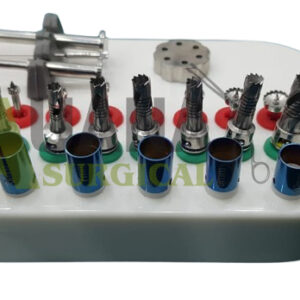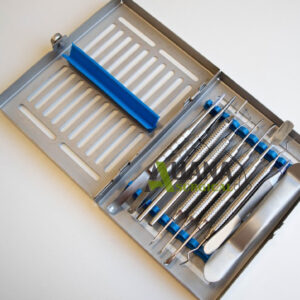-
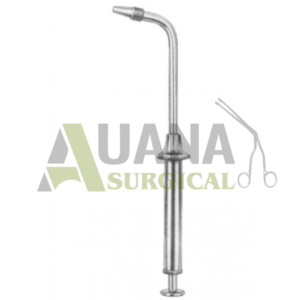
-
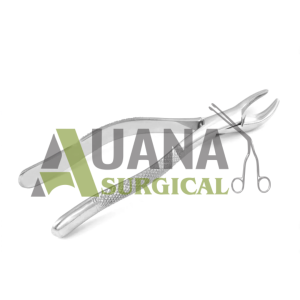
American Extraction Forceps Upper Molar
Read moreAmerican Extraction Forceps are universal tooth extraction forceps used mostly in canine and feline.
American Forceps No. 1 American Forceps, Upper Anterior No. 1 American Extraction Forceps, Lower Universal -
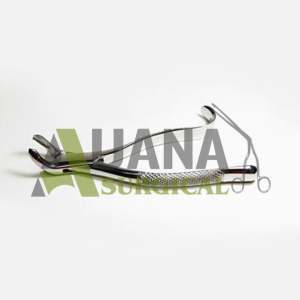
-
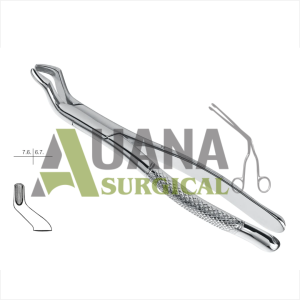
-
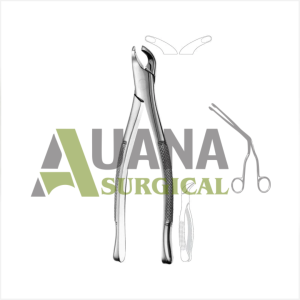
-
Sale!
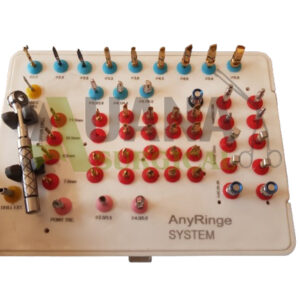
AnyRidge Surgical Kit Master Kit
Original price was: $ 350.$ 300Current price is: $ 300. Add to cart -
Sale!
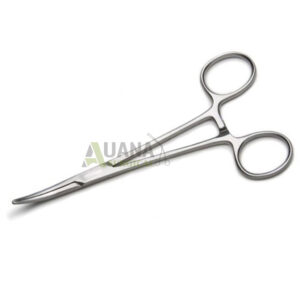
-
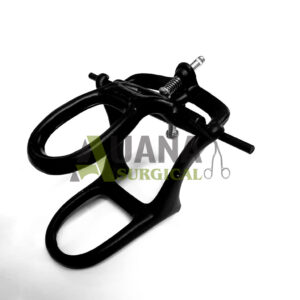
-
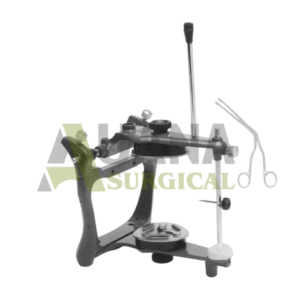
-
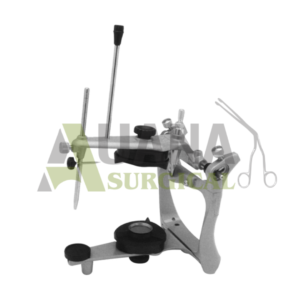
-
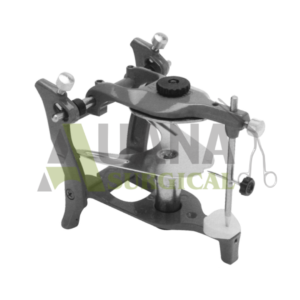
Articulator
Read moreAn articulator is a crucial tool in dentistry, specifically in prosthodontics, orthodontics, and oral surgery. It is a mechanical device that simulates the movements of the temporomandibular joint (TMJ) and allows dental professionals to analyze and replicate the occlusal relationship between the upper and lower teeth. Essentially, an articulator serves as a substitute for the patient’s jaw, enabling dentists and dental technicians to study and manipulate dental models outside of the patient’s mouth.
The primary function of an articulator is to replicate the complex movements of the mandible (lower jaw) in relation to the maxilla (upper jaw). This is essential for various procedures, including the fabrication of crowns, bridges, dentures, and orthodontic appliances. By accurately replicating the patient’s occlusal relationship, an articulator helps ensure that dental restorations fit properly, function effectively, and maintain the patient’s natural bite.
Articulators come in various types and designs, ranging from simple mechanical devices to sophisticated computerized systems. The most basic articulators, known as hinge articulators, replicate only the opening and closing movements of the jaw. These are suitable for simple dental procedures where precise occlusal adjustments are not required.
More advanced articulators, such as semi-adjustable and fully adjustable articulators, offer greater versatility and accuracy. Semi-adjustable articulators allow for adjustments in the condylar inclination and intercondylar distance, while fully adjustable articulators can replicate a wide range of mandibular movements, including protrusive and lateral excursions. These articulators are commonly used in complex restorative and reconstructive cases where precise occlusal registration is essential.
In addition to mechanical articulators, digital or virtual articulators have emerged with the advancement of technology. These articulators utilize computer software and digital imaging to simulate jaw movements and occlusal relationships. Digital articulation offers advantages such as enhanced precision, efficiency, and the ability to store and transfer digital records electronically.
Overall, articulators play a vital role in modern dentistry by facilitating accurate diagnosis, treatment planning, and fabrication of dental prostheses. Whether mechanical or digital, articulators enable dental professionals to achieve optimal outcomes by ensuring proper occlusion, function, and aesthetics in restorative and orthodontic procedures. Their versatility and precision make them indispensable tools in dental practices worldwide.
-
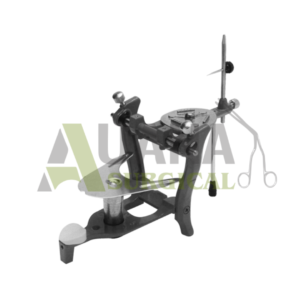
Articulator
Read moreAn articulator is a crucial tool in dentistry, specifically in prosthodontics, orthodontics, and oral surgery. It is a mechanical device that simulates the movements of the temporomandibular joint (TMJ) and allows dental professionals to analyze and replicate the occlusal relationship between the upper and lower teeth. Essentially, an articulator serves as a substitute for the patient’s jaw, enabling dentists and dental technicians to study and manipulate dental models outside of the patient’s mouth.
The primary function of an articulator is to replicate the complex movements of the mandible (lower jaw) in relation to the maxilla (upper jaw). This is essential for various procedures, including the fabrication of crowns, bridges, dentures, and orthodontic appliances. By accurately replicating the patient’s occlusal relationship, an articulator helps ensure that dental restorations fit properly, function effectively, and maintain the patient’s natural bite.
Articulators come in various types and designs, ranging from simple mechanical devices to sophisticated computerized systems. The most basic articulators, known as hinge articulators, replicate only the opening and closing movements of the jaw. These are suitable for simple dental procedures where precise occlusal adjustments are not required.
More advanced articulators, such as semi-adjustable and fully adjustable articulators, offer greater versatility and accuracy. Semi-adjustable articulators allow for adjustments in the condylar inclination and intercondylar distance, while fully adjustable articulators can replicate a wide range of mandibular movements, including protrusive and lateral excursions. These articulators are commonly used in complex restorative and reconstructive cases where precise occlusal registration is essential.
In addition to mechanical articulators, digital or virtual articulators have emerged with the advancement of technology. These articulators utilize computer software and digital imaging to simulate jaw movements and occlusal relationships. Digital articulation offers advantages such as enhanced precision, efficiency, and the ability to store and transfer digital records electronically.
Overall, articulators play a vital role in modern dentistry by facilitating accurate diagnosis, treatment planning, and fabrication of dental prostheses. Whether mechanical or digital, articulators enable dental professionals to achieve optimal outcomes by ensuring proper occlusion, function, and aesthetics in restorative and orthodontic procedures. Their versatility and precision make them indispensable tools in dental practices worldwide.
-
Sale!
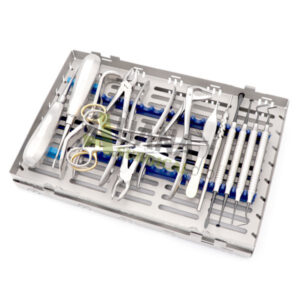
-

-

-
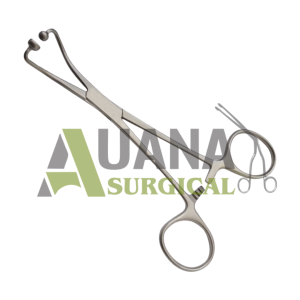
Backhaus Towel Clamp
$ 5 Add to cartSize: 140mm, Not perforating and not damaging.
Technical Specifications:
Size: 140mm
Material: Stainless Steel
Rusting Prevention Procedure: Passivated
Ultrasonic Cleaned: Yes
Dull-Polished: Yes
Usage: Left Hand or Right Hand
Tests Performed: Performance Test, Shape Test and Boil Test.
Packing: Individually Packed
QC Passed: Yes
Dental Instruments Manufacturers in Pakistan – Auana Surgical


